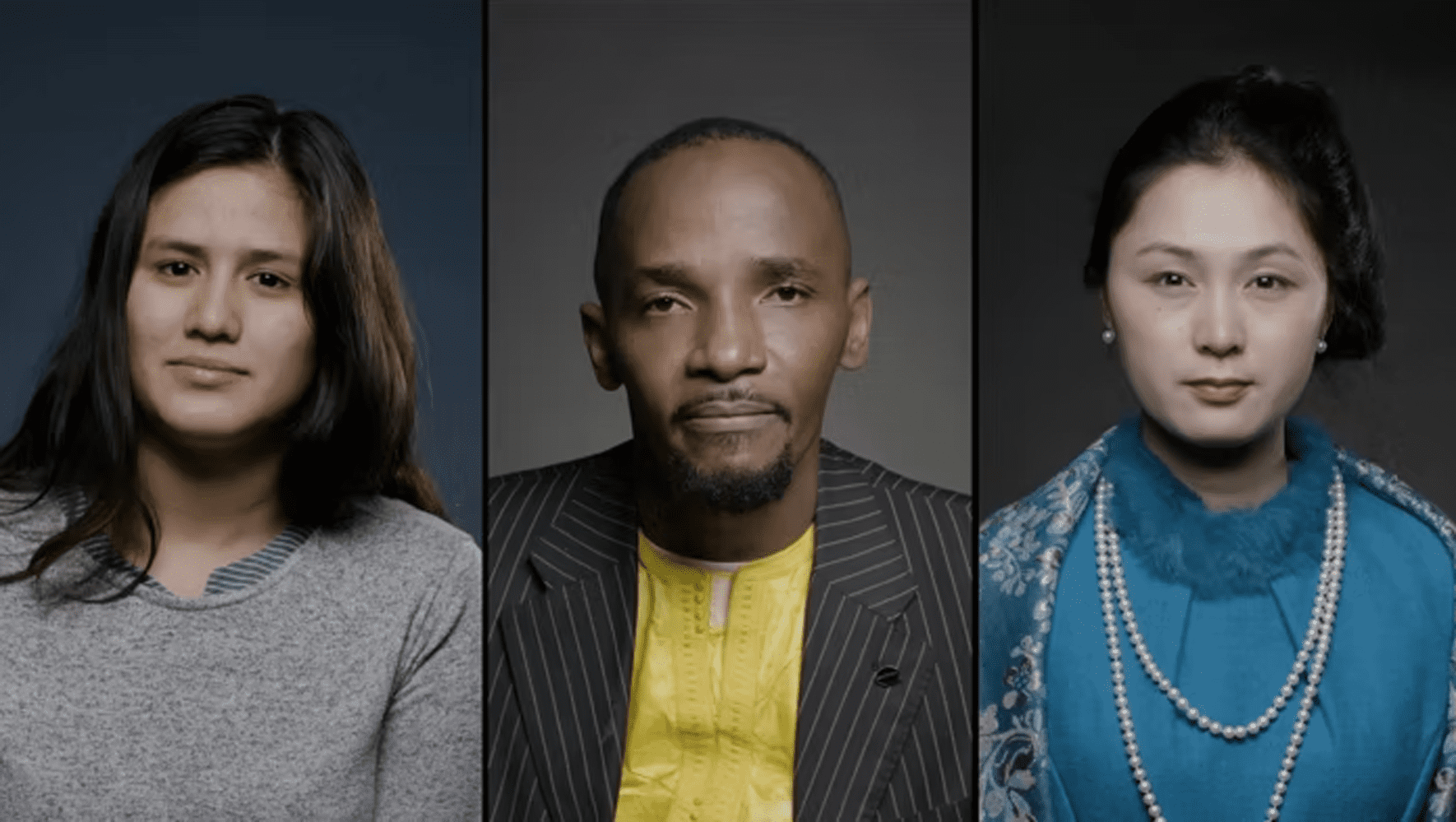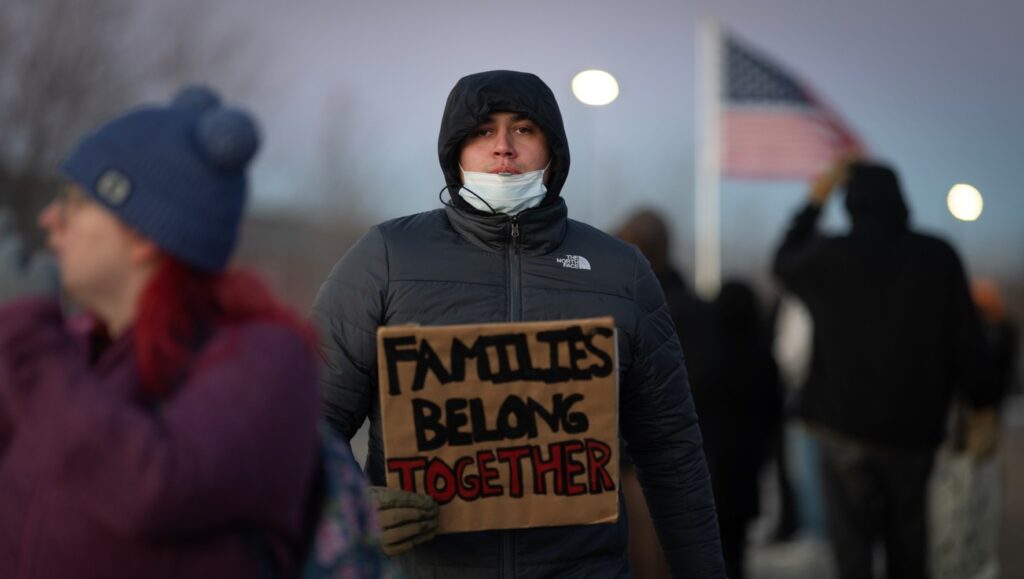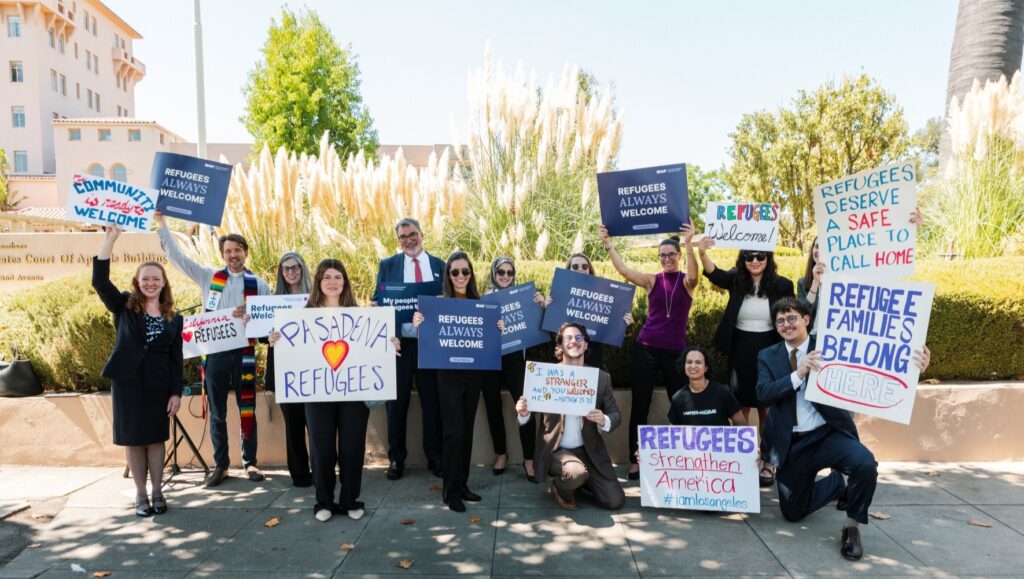Asylum is a protection granted to people fleeing persecution based on their race, religion, nationality, political opinion, or membership in a particular social group. An asylum seeker is someone who has applied for protection but has not yet received any legal recognition or status.
HIAS works in the United States and around the world, helping to secure protection and legal status for those seeking protection. We have provided comprehensive legal services to asylum seekers for decades and have long been at the forefront of national and international advocacy for just and humane asylum laws, seeking to ensure that those who need it have access to protection under the 1951 Refugee Convention and the 1980 Refugee Act.
HIAS’ Work with Asylum Seekers in the U.S.
HIAS’ U.S. legal program seeks to safeguard and increase the rights of asylum seekers upon their arrival in the U.S. and throughout their journey to citizenship. Our U.S. legal team provides pro bono representation in deportation proceedings and in obtaining humanitarian visas and asylum, while also providing holistic support to our clients through wraparound services.
Unlike resettled refugees, who arrive in the U.S. with already established legal status, asylum seekers start the asylum process after they arrive in the country. Some asylum seekers present themselves to authorities at ports of entry (like an airport) or after crossing at the southern border. Others arrive on a visa and then claim asylum. All of these approaches are legal according to U.S. law; however, under current policy, asylum seekers who present themselves at a port of entry may be detained. Many remain in detention throughout their asylum proceedings. In most cases, asylum seekers must apply for asylum within one year of arriving in the U.S. or they risk losing eligibility.
The asylum process can take anywhere from six weeks to five years, and applicants are not eligible to receive government support or to work for at least the first five months they are in the U.S. Once an asylum seeker’s case has been pending for 150 days, they can apply for work authorization, which can take several months to a year to receive.
If an affirmative application is not granted by the asylum office, the case is referred to the immigration court for removal proceedings. There, the applicant will have another opportunity to present their case to an immigration judge. The government does not provide an attorney, so many applicants represent themselves, putting them at a distinct disadvantage when facing government lawyers and complex immigration laws.
Asylum grants in the U.S. vary drastically by jurisdiction and judge. There is also a wide variance depending on the asylees’ nationality and whether they are represented by an attorney.
If a person is eventually granted asylum status, they may be eligible for some state and federal benefits, as well as the right to petition for immediate family members abroad or in the U.S.
After one year, asylees may apply for lawful permanent resident status (a green card). Once that is granted, they must wait four years to apply for citizenship. Neither residency nor citizenship is guaranteed; at any point in the process, the asylee can still face deportation (for example, in case of a criminal conviction or other legal issue). Ultimately, the safest immigration status is U.S. citizenship.
For Those Seeking Assistance
HIAS provides legal assistance to persons of all nationalities, religions, and backgrounds who are afraid to return to their home countries and who do not have the means to pay for legal representation. Our attorneys in New York City and Silver Spring, Md., offer monthly phone consultations with follow-up in-person consultations for those with viable cases. We are open to referrals from other non-profit organizations, as well as private attorneys.
Once someone receives asylum in the United States, they are eligible for a range of benefits to help them integrate into American society, including English classes, employment programs, health insurance, and more. It can be hard to find information about these benefits, however. HIAS created a website, asyleeoutreach.org, as a stand-alone resource that offers information on asylee benefits in both English and Spanish and the contact information for the various resettlement agencies who serve asylees in Maryland, Washington, D.C., and Virginia. The site also features content tailored to immigration attorneys, including valuable resources, such as a guide to using the government’s InfoPass system to help clients receive identity and status documents.
Together, we can help create a world in which refugees find welcome, safety, and opportunity.
Your gift will help us provide vital services to refugees and asylum seekers and advocate for their fundamental rights so they can rebuild their lives.




